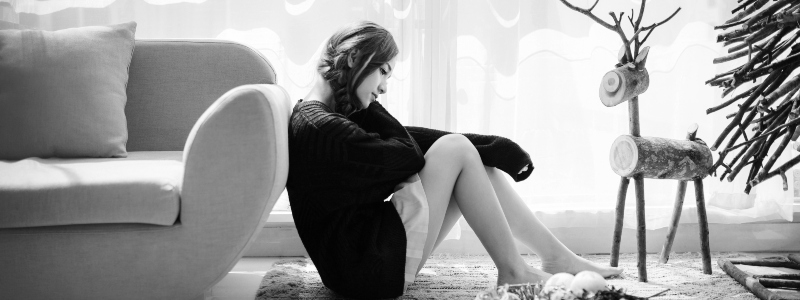What do Christmas and marriage have in common? Answer: they both come with high expectations of maximum harmony and happiness, imposing ideals that regularly confound our experience.
This November a major retail chain unveiled its Christmas TV ad featuring celebrities destroying seasonal activities they appear to hate, like card-sending and party-games, to the refrain, ‘This Christmas do only what you love’. It was enough to earn swift condemnation from a traditionalist headteacher, publishing on social media her letter of complaint to the retailer, accusing them of promoting ‘selfishness’, rather than the ‘self-sacrifice’ she saw as the true spirit of Christmas.
This clash of perspectives reminds us of the way Christmas comes with entrenched cultural expectations for us all, aside from its annually intense social and economic pressures.
Peak Break-up Time
Similarly with the institution of marriage, in the west our culture still privileges an idea of perfect romantic love, implying that once any couple has made this life commitment to each other, somehow from that point on there will be no confusion over reconciling who needs what and when in the relationship and that behaving well towards each other will come naturally.
It is little wonder then, when popular surveys reveal that with the arrival of Christmas and its myriad external influences, many couples experience ruptures which have led to the season being labelled ‘peak break-up’ time. The charity Relate reports that each January typically sees an increase in the numbers of couples seeking their help.
Avoiding Apocalypse This Christmas
So, if Christmas and couples often don’t mix well, is there a way to anticipate ruptures before they begin? Research in the 1990s from observations of young couples interacting revealed four most common behaviours as the highest predictors of relational failure. The psychologist John Gottman observed the following in higher conflict couples:
Criticism – using words or actions that diminish your partner’s personality
Contempt – using disrespectful words or behaviour towards your partner
Defensiveness – avoiding responsibility for your own feelings and actions
Stonewalling – withdrawing from any meaningful contact with your partner
It can be useful for any of us to look at a close relationship we have through the lens of these behaviours, which Goffman labelled ‘the Four Horsemen of the Apocalypse’. Is it possible that the tensions of the coming season will increase the likelihood of you, your partner or another family member riding one of these horses?
I’m sure that in some of our relationships most of us have occasionally behaved in these ways. And two of the most helpful aspects of this ‘Apocalypse’ model might be seen as a guide for us if outside stressors like the Christmas season heighten relational discord.
Firstly, if we encounter these behaviours in ourselves or others we can understand them as defensive strategies aimed at avoiding the much harder work of meaningful relational contact. Simply looking out for and noticing them can allow us to pause and acknowledge this and change our approach.
Secondly, this model of relational breakdown proposes these destructive behaviours start with criticism, before moving into more entrenched areas of attacking or withdrawing behaviour. They therefore offer a way for us to recognise when we might be moving into a damaging cycle. One way of checking our criticism of a partner, particularly when we are in open conflict, is to avoid starting sentences with, ‘You are….’ or ‘You always…’, which often judge and define the other person and make it more likely they will either defend or retaliate.
The Value of Couples Counselling
If you think my preceding suggestions sound much easier written than followed, then I agree with you completely. Commitment to another in a long term relationship requires us to work with our own processes as well as navigate the dynamics of our relationship. This is why breaking out of unhelpful relational patterns can feel especially hard to do from within the relationship.
A series of sessions with a counsellor can make all the difference to any couple struggling with conflict or simply trying to reconnect. Making space for each other by meeting together with someone else on neutral territory can offer a refuge from domestic settings perhaps more recently associated with mutual antagonism.
The counsellor commits impartially to both individuals to support them to understand themselves better. And through focusing on the dynamics of the relationship, the counsellor can help the couple to understand their ways of being together, to learn how they might expand and strengthen their original bond, or make different choices that fully respect each other’s needs and wants. Such a couple might avoid Armageddon and may even see it as the most valuable Christmas present to themselves.
To enquire about psychotherapy sessions with Chris Horton, please contact him here, or to view our full clinical team, please click here.
Chris Horton is a registered member of the British Association for Counselling & Psychotherapy (BACP) and a psychotherapeutic counsellor with experience in a diverse range of occupational settings.
Further reading by Chris Horton –
When it comes to change, is it better to stop or to start?
You’re not watching me, Mummy!

Leave a Reply